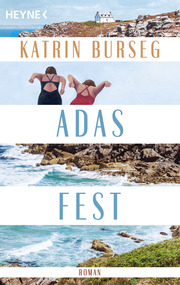Beschreibung
To find "criteria of simplicity" was the goal of David Hilbert's recently discovered twenty-fourth problem on his renowned list of open problems given at the 1900 International Congress of Mathematicians in Paris. At the same time, simplicity and economy of means are powerful impulses in the creation of artworks. This was an inspiration for a conference, titled the same as this volume, that took place at the Graduate Center of the City University of New York in April of 2013. This volume includes selected lectures presented at the conference, and additional contributions offering diverse perspectives from art and architecture, the philosophy and history of mathematics, and current mathematical practice.
Autorenportrait
Roman Kossaks research is in model theory of nonstandard models of formal arithmetic. For over 30 years he has worked at the City University of New York, where he teaches developmental courses at Bronx Community College and mathematical logic and model theory at the Graduate Center. His other interests include phenomenology and interactions between mathematics and the arts.
Philip Ording is a member of the mathematics faculty at Sarah Lawrence College in Bronxville, New York. He received a PhD in Mathematics from Columbia University in 2006. While a graduate student of topology and geometry he began working as a mathematics consultant in art and architecture studios in New York. Since then he has published essays, curated exhibitions, and lectured on the intersection of mathematics and the arts.
Inhalt
Inner Simplicity vs. Outer Simplicity (E. Ghys).- The Complexity of Simplicity: The Inner Structure of the Artistic Image (J. Pallasmaa).- Thinking in Four Dimensions (D. McDuff).- Kant, Co-Production, Actuality, and Pedestrian Space: Remarks on the Philosophical Writings of Fred Sandback (J. Kennedy).- What Simplicity Is Not (M. Malliaris).- Constructing the Simples (C. Franks).- The Simplicity Postulate (M. Senechal).- The Experience of Meaning (J. Zwicky).- Math Currents in the Brain (M. Gromov).- bc, becuz, because ASCII (K. Shepherd).- "Abstract, Directly Experienced, Highly Simplified, and Self-Contained": Discourses of Simplification, Disorientation, and Process in the Arts (R. Stewen).- Remarks on Simple Proofs (R. Iemhoff).- The Fluidity of Simplicity (J. Floyd).- "Mathematical Typography" (After Donald Knuth, 1978) (D. Sinister).- Simplicity Via Complexity (A. Villaveces).- On the Alleged Simplicity of Impure Proof(A. Arana).- Minimalism and Foundations (S. Gerhardt).- Economy of Thought: A Neglected Principle of Mathematics Education (A. Borovik).- Simplicity is the Point (D. Sullivan).- Appendix A: Simplicity, in Mathematics and in Art (A. Jackson).- Appendix B: Conference Program.- Index.
Informationen zu E-Books
„E-Book“ steht für digitales Buch. Um diese Art von Büchern lesen zu können wird entweder eine spezielle Software für Computer, Tablets und Smartphones oder ein E-Book Reader benötigt. Da viele verschiedene Formate (Dateien) für E-Books existieren, gilt es dabei, einiges zu beachten.
Von uns werden digitale Bücher in drei Formaten ausgeliefert. Die Formate sind EPUB mit DRM (Digital Rights Management), EPUB ohne DRM und PDF. Bei den Formaten PDF und EPUB ohne DRM müssen Sie lediglich prüfen, ob Ihr E-Book Reader kompatibel ist.
Wenn ein Format mit "Adobe DRM" genutzt wird, besteht zusätzlich die Notwendigkeit, dass Sie einen kostenlosen Adobe® Digital Editions Account besitzen. Wenn Sie ein E-Book, das Adobe® Digital Editions benötigt herunterladen, erhalten Sie eine ASCM-Datei, die zu Digital Editions hinzugefügt und mit Ihrem Account verknüpft werden muss.
Einige E-Book Reader (zum Beispiel PocketBook Touch) unterstützen auch das direkte Eingeben der Login-Daten des Adobe Accounts – somit können diese ASCM-Dateien direkt auf das betreffende Gerät kopiert werden.
Da E-Books nur für eine begrenzte Zeit – in der Regel 6 Monate – herunterladbar sind, sollten Sie stets eine Sicherheitskopie auf einem Dauerspeicher (Festplatte, USB-Stick oder CD) vorsehen. Auch ist die Menge der Downloads auf maximal 5 begrenzt.


































